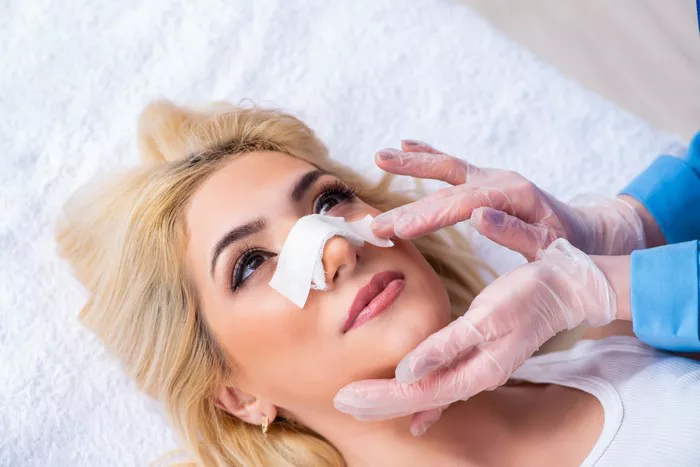Rhinoplasty, commonly known as a nose job, is a surgical procedure performed to reshape or enhance the appearance and functionality of the nose. After undergoing this surgery, individuals often have questions about their post-operative lifestyle, including whether they can consume alcoholic beverages. Alcohol is known to have various effects on the body, and understanding its impact on the healing process after rhinoplasty is important. In this article, we will explore the considerations and guidelines for drinking alcohol after rhinoplasty.
Understanding the Healing Process
Before discussing the consumption of alcohol after rhinoplasty, it is essential to understand the healing process associated with this type of surgery. After the procedure, the body undergoes a complex healing process to repair the surgical site and adapt to the changes made to the nose.
In the immediate days following rhinoplasty, there is significant swelling, bruising, and sensitivity in and around the nose. The nasal tissues, including the bones, cartilage, and soft tissues, require time to heal, settle, and achieve their final shape.
During the initial healing period, it is crucial to follow post-operative instructions provided by your surgeon. These instructions are tailored to promote optimal healing and reduce the risk of complications. They typically include guidelines regarding activities, medications, and lifestyle choices such as alcohol consumption.
Effects of Alcohol on Healing
Alcohol can have several effects on the body that can potentially impact the healing process after rhinoplasty. It is important to consider these effects when determining whether it is safe to consume alcohol during the recovery period.
-
Increased Bleeding
Alcohol is a known blood thinner, meaning it can impair the blood’s ability to clot. This can increase the risk of post-operative bleeding, which is particularly concerning during the initial days after rhinoplasty when bleeding is more likely. Excessive bleeding can interfere with the healing process and may require medical intervention.
-
Dehydration
Alcohol is a diuretic, which means it increases urine production and can lead to dehydration. Proper hydration is crucial for optimal healing after surgery, as it promotes tissue health and reduces the risk of complications. Dehydration can also exacerbate post-operative swelling, making the recovery process more uncomfortable.
-
Impaired Immune Function
Alcohol can impair the function of the immune system, which plays a vital role in the healing process. A compromised immune system may be less effective in fighting off potential infections, which can increase the risk of complications and delay the healing process.
-
Delayed Wound Healing
Alcohol consumption can impede the body’s ability to heal wounds. It can slow down the production of new cells and collagen, which are essential for tissue regeneration and proper wound healing. Delayed wound healing can prolong the recovery process and potentially affect the final results of rhinoplasty.
Guidelines for Alcohol Consumption
While it is generally advisable to avoid alcohol during the healing period after rhinoplasty, specific guidelines may vary depending on individual circumstances and your surgeon’s recommendations. Here are some general guidelines to consider:
-
Immediate Post-Operative Period
It is crucial to abstain from alcohol during the immediate post-operative period, which usually lasts for several days. This period is critical for the initial healing and stabilization of the surgical site, and alcohol consumption can increase the risk of bleeding and other complications.
-
Consult with Your Surgeon
Before resuming alcohol consumption, it is essential to consult with your surgeon. They will evaluate your healing progress, the extent of your surgery, and any other factors specific to your case. Based on their assessment, they can provide personalized recommendations regarding the appropriate timing for reintroducing alcohol into your routine.
-
Wait for Full Recovery
It is generally advisable to wait until you have fully recovered from rhinoplasty before consuming alcohol. This typically means waiting for several weeks to a few months, depending on the extent of your surgery and your body’s healing response.
-
Moderation is Key
If your surgeon approves alcohol consumption during the recovery period, it is crucial to do so in moderation. Excessive alcohol intake can have a more pronounced impact on the healing process and increase the risk of complications. Limit your alcohol consumption and drink responsibly.
-
Hydration is Essential
If you do choose to consume alcohol after the recovery period, it is important to prioritize hydration. Drink plenty of water before, during, and after consuming alcohol to counteract its dehydrating effects.
Individual Considerations
It is important to note that individual factors can influence the impact of alcohol on the healing process. These factors include overall health, medication use, and personal habits. It is essential to discuss your specific situation with your surgeon and follow their recommendations regarding alcohol consumption.
Conclusion
While it may be tempting to celebrate or relax with a drink after rhinoplasty, it is important to prioritize your healing and follow your surgeon’s guidelines. Alcohol consumption can have negative effects on the healing process, including increased bleeding, dehydration, impaired immune function, and delayed wound healing.
To promote optimal healing and achieve the desired results, it is generally recommended to abstain from alcohol during the immediate post-operative period and wait until you have fully recovered. If your surgeon approves alcohol consumption after the recovery period, remember to do so in moderation and prioritize hydration.
Always consult with your surgeon for personalized advice and recommendations based on your unique circumstances. By following their guidance and taking proper care of yourself during the recovery period, you can optimize your rhinoplasty results and enjoy the benefits of a transformed nose.


